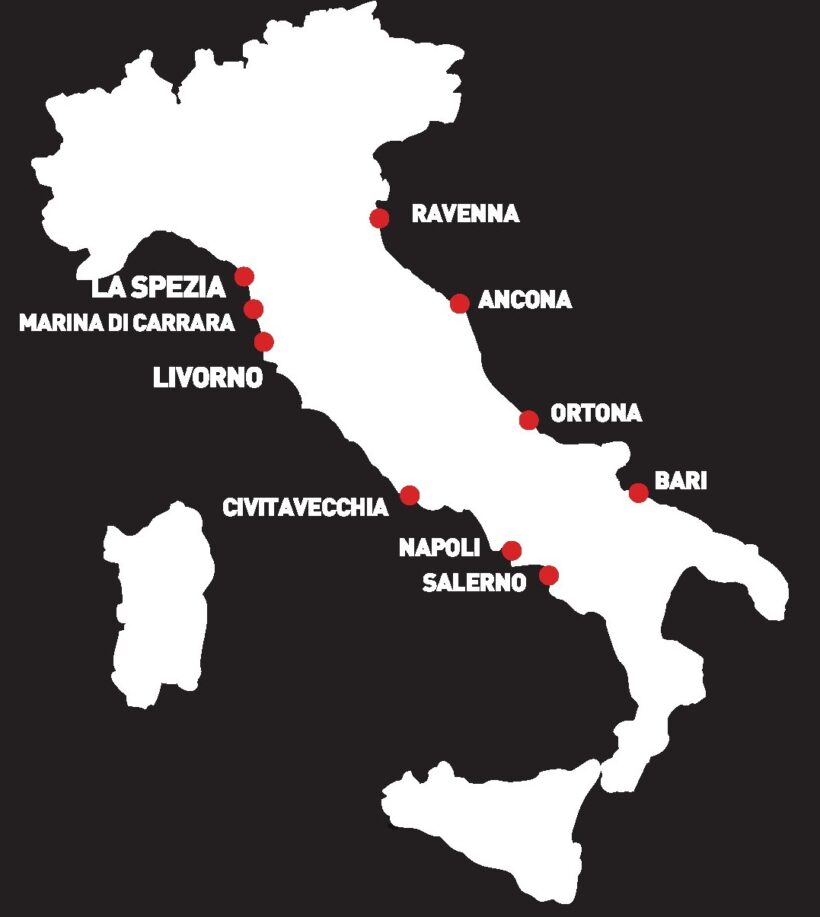The Association for Legal Studies on Immigration (Associazione per gli Studi Giuridici sull’Immigrazione) (ASGI), EMERGENCY, Médecins Sans Frontières (MSF), Oxfam Italy and SOS Humanity are filing a complaint with the European Commission to request an examination of the new Italian law on the management of migration flows ( 15/2023). The NGOs highlight that the new legislation raises serious concerns regarding its compatibility with European Union (EU) law and member states’ obligations under international law regarding search and rescue activities at sea.
“The European Commission is the guardian of the EU treaties and ensures that the Member States respect international and EU law” says Giulia Capitani, policy advisor on immigration and asylum at Oxfam Italy. “It should uphold and protect the fundamental rights of all people in Europe. Instead, it is NGOs that fill the shameful vacuum left by EU Member States. Instead of [being] hampered in their work, NGOs should be involved in setting up an adequate search and rescue system at sea.”
The new Italian law stipulates that boats proceed without delay to the assigned port after the first rescue operation, thus limiting the action of boats in providing assistance to other boats in distress. The rule also obliges captains to provide the Italian authorities with unspecified information on the rescue carried out, leading to a request for excessive information.
The new law is aggravated by the recent practice of the Italian authorities of assigning distant ports for disembarkation. This policy is not mandated by any legislation, but has become common practice since December 2022, significantly increasing journey times and consequently limiting the presence of humanitarian vessels in the search and rescue area.
The five NGOs believe that the combination of these measures imposes unjustified restrictions on search and rescue operations and severely limits their ability to save lives at sea.
“Every day spent away from the search and rescue area, whether under arrest or sailing to a distant port, puts lives at risk,” says Djoen Besselink, MSF operations manager. “The law affects NGOs, but the highest price will be paid by people fleeing across the Mediterranean [and] find themselves on a boat in distress”.
Increasing journey times to more distant ports also pose risks to the physical and mental health of those rescued on board. “Assigning safe places more than 1,000 km away from the rescue site harms the physical and psychological well-being of survivors,” says Josh[1][1], captain of SOS Humanity rescue vessel Humanity 1. “The 199 people we recently rescued, including pregnant women and newborns, were forced to travel around 1,300km before disembarking in Italy, even though other Italian ports were much closer.”
“The rescued people come from countries affected by wars, climate change and human rights violations” explains Carlo Maisano, EMERGENCY Life Support coordinator. “Often they are in conditions of extreme fragility, aggravated by more time spent at sea”.
On 23 February 2023, Law 15/2023 (at the time still a decree-law) was applied for the first time when the Ancona Port Authority notified MSF of a 20-day detention order for its vessel Geo Barents and a €5,000 fine for failing to provide information that had never been requested before.
Since then, Italian authorities have detained four other humanitarian search and rescue vessels – Aurora[1][2], Louise Michel, Sea-Eye 4[3][1][3] and Mare*Go[1][4 ] – for a period of 20 days each for violation of the new legislation. This means a total of 100 days lost for humanitarian search and rescue vessels, while perilous sea voyages and shipwrecks in the Mediterranean continued.
“People rescued at sea are legally shipwrecked, rather than migrants, and their entry into the national territory through rescue at sea cannot be considered in conflict with immigration legislation. The obligation to provide assistance is, in fact, mandatory and not limited and, it is worth reiterating, it is independent of the subjective qualification of the rescued person” concludes lawyer Lorenzo Trucco, president of ASGI.
ASGI, EMERGENCY, MSF, Oxfam Italy and SOS Humanity ask the European Commission to immediately examine law 15/2023 and the assignment to distant ports. As guardian of the EU treaties, the European Commission is responsible for ensuring that EU Member States comply with the relevant laws and stop impeding the life-saving work of sea search and rescue NGOs. If anything, this work should be integrated into a proactive and state-led search and rescue system in the Mediterranean Sea.
[1][1] Who asked to be identified by name only [1][2] Sea-Eye e. v.
[1][3] Sea-Eye e. v.
[1][4] Sea-Watch e. v.










